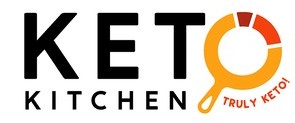There are several health benefits associated with following both vegan and keto diets.
For example, people on a vegan diet have been shown to weigh less and have a lower risk of obesity and diabetes.
High-fat, low-carb Keto diet is said to have its own health benefits. They include fat loss, weight loss, better brain functions, to better overall health.
The Keto diet is also known to be effective in managing blood sugar and lowering heart disease risks.
Nonetheless, transitioning and adapting to a ketogenic diet can be challenging.
As your body transitions from a carb-based diet to a low-carb, high-fat diet, you may feel side effects.
It’s often referred to as Keto flue, and it’s typical for first-timers to go through this period.
Side effects of the Keto vegan diet you may experience include ():
- Fatigue
- Nausea
- Irritability
- Constipation
- Poor concentration
- Diarrhea
- Weakness
- Headaches
- Muscle cramps
- Dizziness
- Difficulty sleeping
When you are experiencing Keto flu symptoms, there are a few tips you can use to remedy and ease the experience.
Staying hydrated, getting plenty of rest, and eating a lot of fiber-rich foods are known as Keto flu cure.
If your condition allows it, light activity like walking is also said to help.
If you are experiencing headaches, muscle aches, and insomnia, the following supplements are recommended.
- Electrolytes magnesium
- Potassium
- Sodium
While vegan Keto diet is possible and healthy for some, it may not be appropriate for others.
If you are pregnant, breastfeeding, and/or have health conditions such as type 1 diabetes, it may not be for you.
Also, if you have any history of eating disorders or illness, it may not be suitable for you.
Before starting any new diet including a vegan Keto diet, consult with a local doctor to see if it’s safe for you.




Leave a Comment